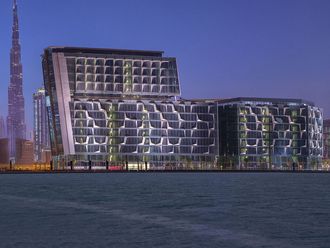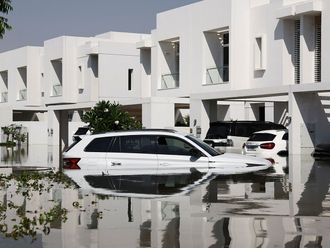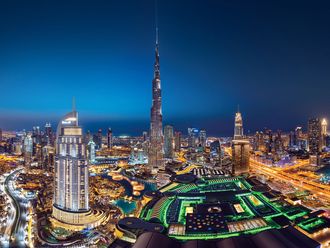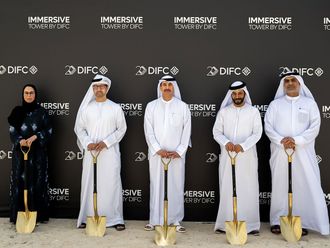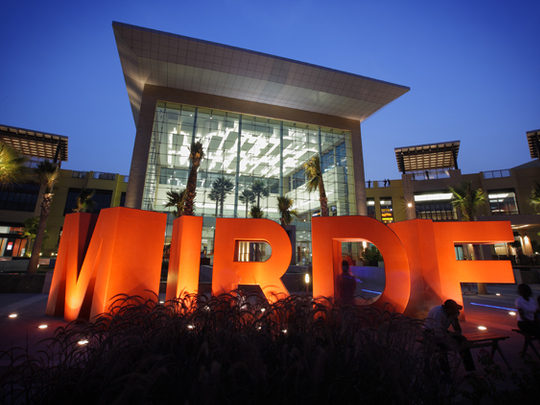
Shopping malls in Dubai have always shared a symbiotic relationship with tourists, but that was until recessionary trends started seeping in. Now, faced with reduced consumer budgets, ebbing tourist arrivals and lower footfall, mall owners are rethinking strategies and re-positioning new retail supply.
The newly opened Mirdif City Centre has modelled itself on these lines despite being touted as a super regional mall, possibly the last of such developments in the foreseeable future.
The latest addition to the Majid Al Futtaim (MAF) Properties' portfolio, the Dh3-billion mall has an impressive entertainment and leisure component, making it a strong contender on the scene as a destination mall. With its largest indoor entertainment facility in the region, the Mirdif City Centre hopes to generate more footfall.
Besides, it is expected that its location next to Emirates Road will attract repeat visits from the 450,000 residents in the catchment area as well as those from the northern emirates. "Our vision was to create a large mall, but with the friendly feel of a community-focused environment. The new mall is in line with the company's strategy to develop large destination malls in three important trade areas of Dubai: Deira City Centre, Mall of the Emirates in New Dubai and the Mirdif City Centre in the north-east growth corridor," says Peter Walichnowski, CEO of MAF Properties.The mall offers a gross leasable area (GLA) of 196,000 square metres, and more than 350 stores out of the total 430 were open for trading on the first day. The operator has also roped in a few international brands making their UAE debut, such as US brands Crate & Barrel, American Eagle and Pottery Barn, and UK fashion label Miss Selfridge.
"We have a strong partnership with the retailer community based on our previous successful malls. They support our judgment, both in the positioning and the scale of the development, in the quality and also the delivery," says Jonathan Emery, senior vice-president, project management, MAF.
"Given the market correction, without the confidence based on our past performance, it would have been more difficult for us to get retailers," he says.
There is an evident shift in focus at the mall, from luxury retail to mid-market brands, reflecting the change in the purchasing capacity of the resident population. The anchor stores in Mirdif City Centre are Carrefour, Cinestar Cinemas, Debenhams, Emax, Centrepoint, Home Centre and Fitness First.
"In such a large mall, you have to cater to all customers. Near Carrefour, there are value-driven brands while the aspirational brands are at another end. We don't have luxury brands, that's concentrated in the Mall of the Emirates. Brands here are more middle market," says Emery.
Continued on Page 34
Continued from Page 33
On the green building front, Mirdif City Centre aspires to be the first shopping centre in the Middle East to achieve a Gold Leed(Leadership in Energy and Environmental Design) rating. While most of the building materials have been procured from sustainable or local sources, the developer also ensured that 50 per cent of the construction waste did not end up in landfills.
Amid declining sales and the oversupply of shopping space, market observers believe promoters of large-scale retail developments will bide their time until consumer confidence returns. "This is the end of an era of development of super regional malls. This sector of the market has approached saturation in the short-medium term. The Mirdif City Centre will be the last of its kind for a while," says David Macadam, head of retail, Jones Lang LaSalle Mena.
However, thinktanks at MAF beg to differ. "The challenge in Dubai's retail landscape is how you innovate to remain competitive. Great centres can ride the ups and downs of business cycles. This is one such centre. The largest retailers in the Mena region have made the largest commitments in terms of store space and brands," says Shahram Shamsaee, senior vice-president, asset management, MAF Properties.
With only a handful of stores yet to be leased out, it remains to be seen whether shoppers' response will be as enthusiastic. Unique leisure concepts such as an indoor sky diving centre, Soccer Circus (an interactive football attraction), Cites des Enfants, a bowling alley and a ten-screen multiplex cinema have been incorporated to capture shoppers' interest. The mall also features more than 75 dining outlets and two food courts.
"Leisure components are a successful model to attract footfall," says Emery. "At the top of the list is the food and beverage outlets, which now take up a significant proportion of space in malls. This is also reflective of a shift in the customers' lifestyle."
Few cities in the Mena region can match Dubai as a retail tourism destination. With Abu Dhabi's offerings paling in comparison, Dubai's behemoths will hope to return to profitability once consumer sentiment returns.
Walichnowski remains confident, saying that, while 2009 was a difficult year for retail, "it didn't cause concern over the feasibility of our malls".
"Sales in our two malls dipped below 2008 levels. But foot traffic did not reduce. We are still attracting a loyal customer base. Dubai needs to continuously upgrade its retail offerings," he says.
Through a joint venture with MAF Dalkea, the company will also oversee the facilities management operations at Mirdif City Centre.
Ambitious expansion
Not one to roll back its ambitious expansion plans, regardless of the downturn, MAF Properties is pressing ahead with plans to double its portfolio gross leasable area to over 2.2 million square metres by 2015. New projects are being planned in the UAE, Oman, Egypt, Lebanon, Syria, Saudi Arabia and Yemen.
"We are working on a community mall in Fujairah, the Beirut City Centre, a mall in Damascus which is part of our mixed-use project in Sabboura and the Mall of Egypt in Cairo," says Peter Walichnowski, CEO, MAF Properties. MAF claims it raises project finance from its own equity and local banks. The Mirdif City Centre was funded by MAF Properties and the Emirates National Bank of Dubai.


